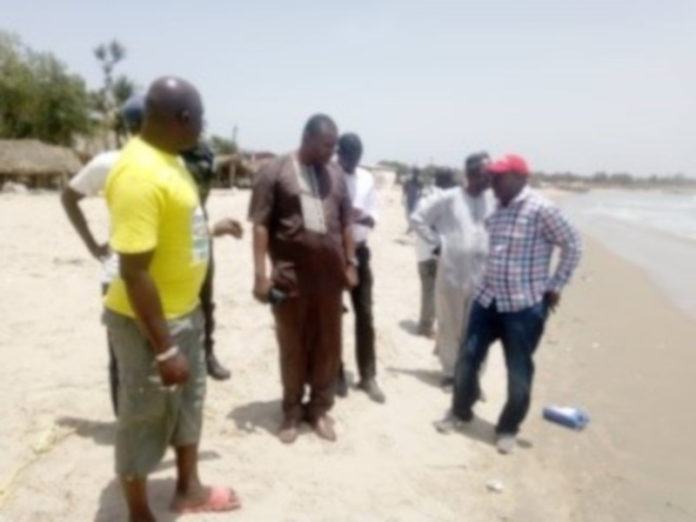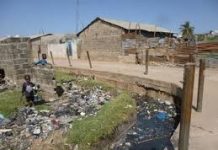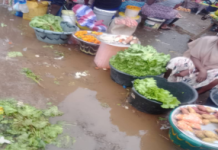By Hatab Nyang
A delegation of Commissioners of the National Human Rights Commission (NHRC) led by Emanuel Joof as the Chairperson, on the 15th of April 2020 embarked on a fact finding mission at the ‘Golden Lead’ and ‘Nissim’ Fish Meal Factories and the Sand mining sites at Gunjur and Sanyang villages respectively.
The delegation’s visit was meant to get firsthand information on the numerous complaints levied against the two factories by the said communities, rights activists and environmentalists.
The first point of call of the delegation was at the sand mining site on the coastline of Gunjur where youth leaders and affected community members informed them of the indiscriminate mining that goes on at the said site and how it hinders the vital livelihoods of the thousands of people especially women gardeners, who lost their land due to the encroachment of sand miners; that the prolonged sand mining is a serious threat to the existence of the Community of Gunjur which has an estimated population of 40,000 (forty thousand) inhabitants.
The delegation saw firsthand an area spanning as far as the eye can see, with several dozen trucks and miners actively operating in the area. According to the residents, this started since 2016; that now the last remaining sand dune to the sea is being severely tampered with. This too could be seen clearly by the NHRC delegation.
From the Gunjur beach site, the delegation headed to the Golden Lead Fishmeal Company where residents bitterly complained that the continuous operation of the Company constitutes a continuous suffering for all inhabitants of Gunjur and environs. They accuse the Company of indiscriminate toxic waste disposal into the sea via a pipe which was vividly exposed. They alleged that the toxic disposal is against standard environmental practice and if it continues, it will pose a serious threat to the well-being of the public who depend on the sea for their survival; that added to environmental pollution, the Company is also engaged in buying juvenile fish of the ‘Bonga’ species which is caught indiscriminately and in abundance, just for the factory to process into fishmeal.
Different speakers accuse members of the Central government, the National Environment Agency (NEA), the Fisheries Ministry and local elected authorities of complacency towards their suffering.
At the ‘Nissim’ Fishmeal Factory in Sanyang, the story was all too similar as members of the community gave a list of restaurants and bars which ceased operation or have been partially paralyzed because of the foul stench that emanates from the factory; that because of this, tourists are now reluctant to visit the once famous area and tourist destination because of the bad odor that comes from the operations of the factory. A highly agitated youth told the delegation that they spent their life savings to invest at this famous tourist’s infrastructure to sustain their livelihoods. However, they claim that if nothing is done to stop the current situation, their survival will be wiped out.
For the benefit of the readership, the NHRC has among other mandates, an advisory role to Government; to investigate human rights abuses and to protect the rights of human beings.
At the end of their fact finding mission, the NHRC promised that they will do whatever is required by Law, to protect the rights of everyone including the social and economic rights of the citizenry to food, health and safety.





















